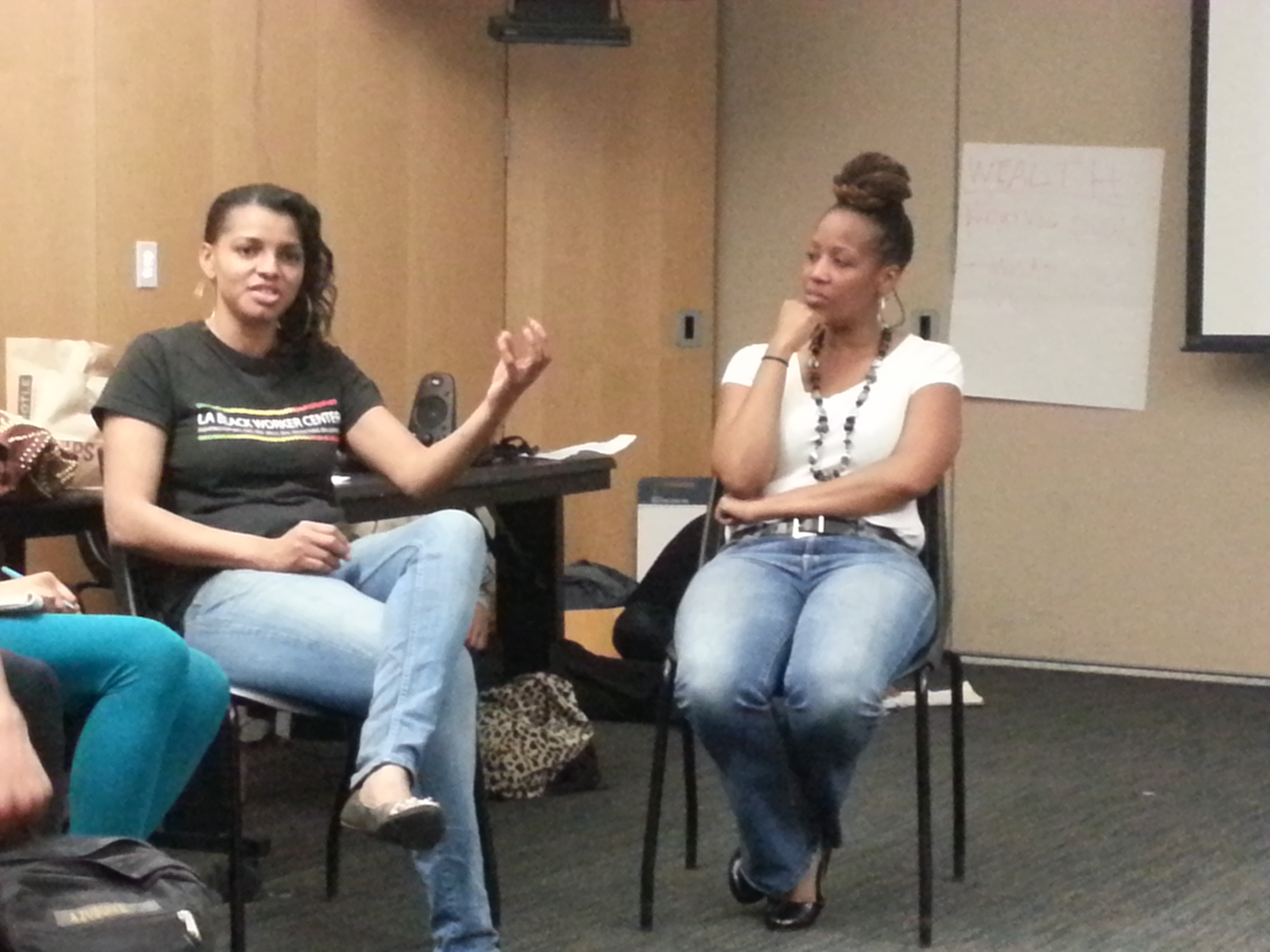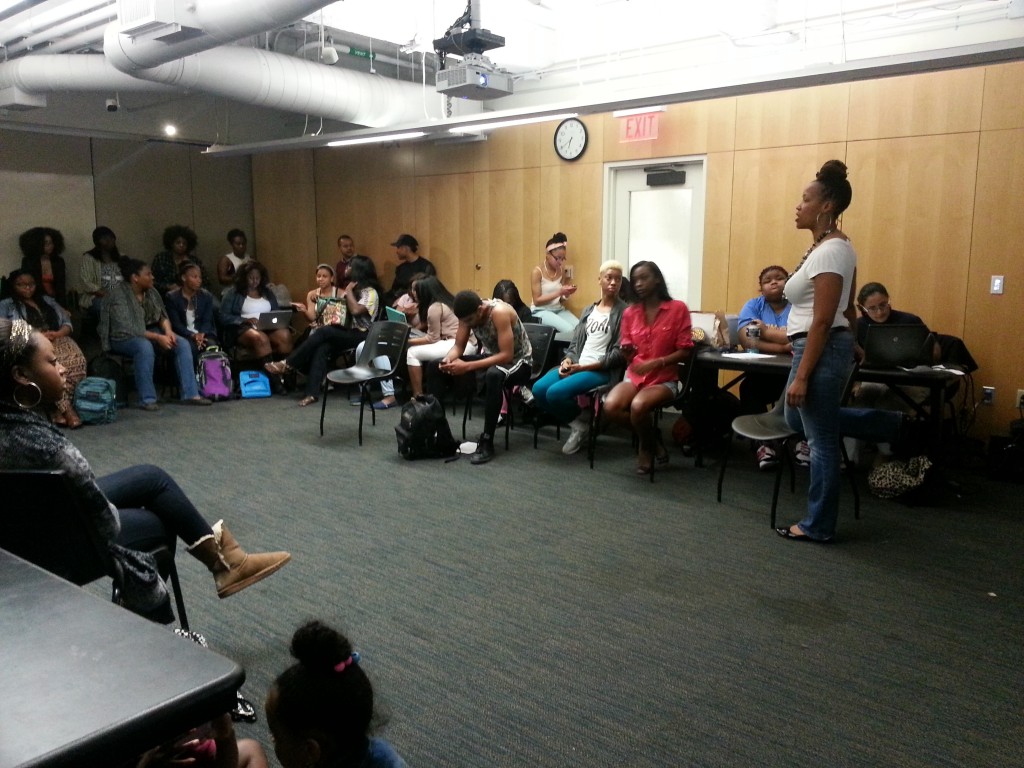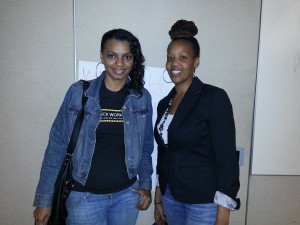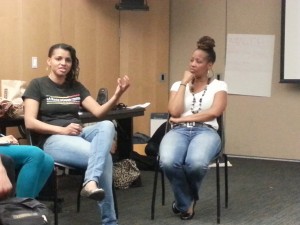“Black students needed in fight for better jobs,” workers say. LA Black Worker Center encourages students to help fight for better employment for the Afrikan American community.
“You’re hiring everybody else, but not us. We work just as hard, if not harder.”
A formerly unemployed construction worker spoke those words to the LA MTA in a video presented during the January 15th General Body Meeting of UCLA’s Afrikan Student Union held in the Student Activities Center.
Black students and Black workers need to work more closely together, according to representatives of the Los Angeles Black Workers Center (LABWC), a community-based organization dedicated to increasing access to quality jobs, fighting workplace discrimination, and improving industries that employ Afrikan American people.
“We want to make the connection between students and workers,” said Lanita Morris, the LABWC Project Coordinator. “We’re hoping to have a back and forth connection and make this a family effort.”
The center works to tackle the two-dimensional job crisis in the Black community: unemployment and underemployment and inequality in the labor market.
“Growth in the economy has not benefited Black workers. Most of the jobs created are low-wage entry level jobs. Despite stereotypes that Black people are lazy and don’t want to work, many in fact are working multiple low-paying jobs,” Morris said.
According to the UC Berkeley Labor Center Black Work Project, Black unemployment was 11.9 percent last month. Overall unemployment in the U.S. is 6.7 percent. Black unemployment in some areas has been estimated to be as high as 50 percent for young Afrikan American men. The need to address the Black Jobs Crisis is urgent, Morris said.
“We focus on Black workers because there is a great need. There needs to be a multiracial effort to change the nature of the economy,” Morris said. The organization works to organize workers, research the status of Black workers, and organize grassroots campaigns.
The LABWC noted their efforts to advocating for a Project Labor Agreement with the LA MTA that could help address the Black Jobs Crisis. The agreement targeted high poverty areas, focusing on disadvantaged workers, and pledged diversity and equal opportunity.
The LABWC is not a job placement organization. Instead of providing a service for job seekers, or helping an individual gain a job, the group instead hopes to empower entire communities with unionized, good paying work.
The LABWC also fights discrimination in the workplace. Morris noted that in many industries, especially in unions, a “hazing” process takes place. At UCLA, workers placed a noose in the locker of a Black worker in 2011, similar to the 2010 noose incident at UC San Diego.
The Center already works with students, but hopes to involve more Afrikan American students due to the shared struggle and common communities both come from.
“It’s important to see the connection between access and retention on campus and in the workforce,” said Sherri Bell, an organizer with the LABWC. The speakers noted the similarities between the experience of Black people in the labor market and Black students at predominantly white institutions.
Many students saw the similarities between Black workers’ experiences.
“It can feel lonely on campus at times,” said Chidera Izuchukwu, a fourth year Afrikan American Studies major and Chair of the Black Bruins Transfer Success program. “We may not even acknowledge each other.” Another student noted that many non-Black students have low expectations of their Black classmates. Many Black people face similar experiences in the workforce.
Salih Muhammad, Chair of Afrikan Black Coalition, the UC wide student organization that encourages students to support workers considering that it was the working sacrifices of Black families that opened the doors for many to pursue education today.
“Many of us will graduate with degrees from the so-called top public universities and still not be able to find work in our fields. Realize the struggle that our friends and families experience without access to higher education,” Muhammad said in an interview. “There should be no separation or isolation between workers and students. We must work together because we are one people.”
The LABWC has a summer internship program and leadership academy for students interesting in organizing for power. This spring, the center also encouraged students to enroll in classes in the Labor and Workplace Studies minor.
For more information about the Los Angeles Black Workers Center, visit lablackworkercenter.org.




